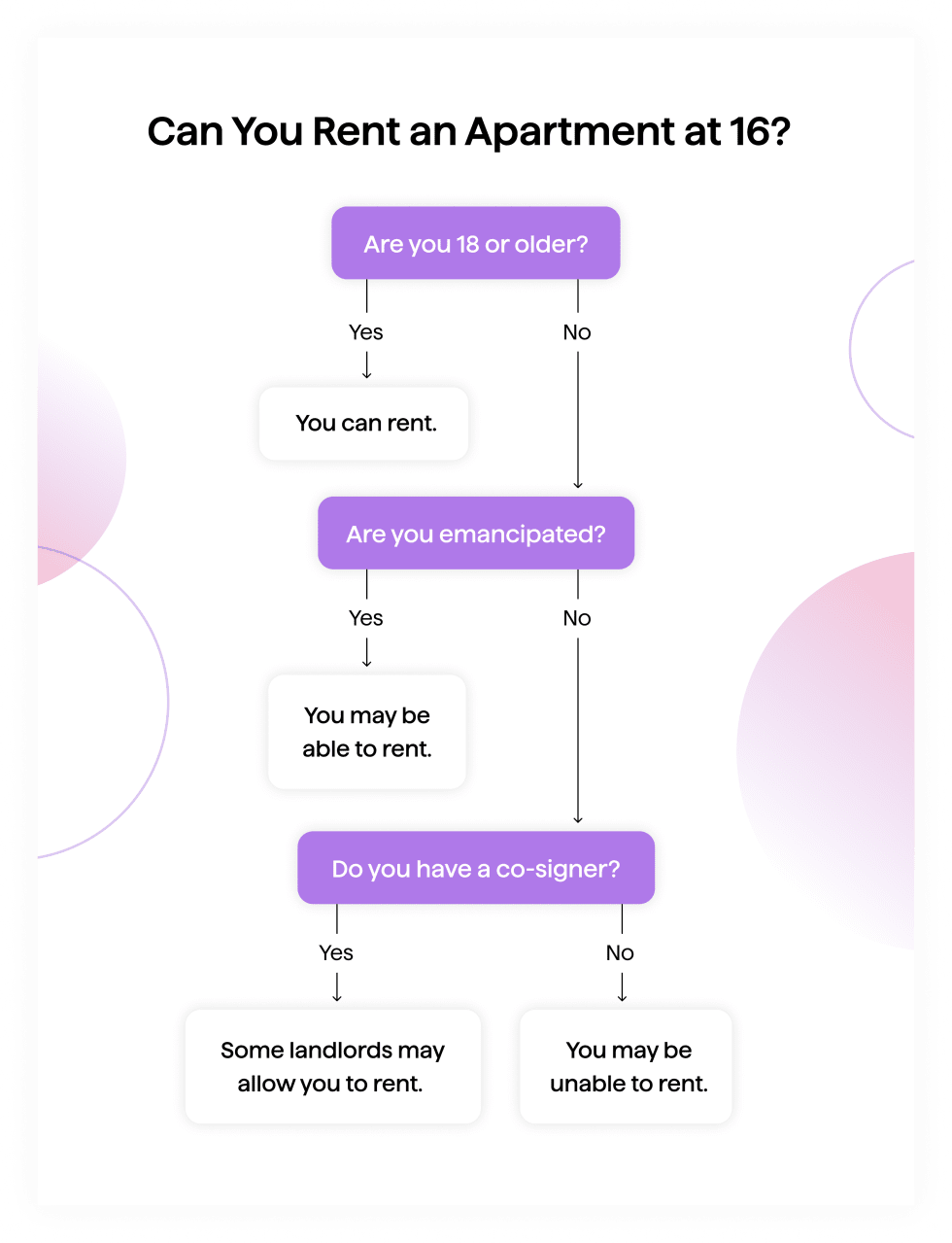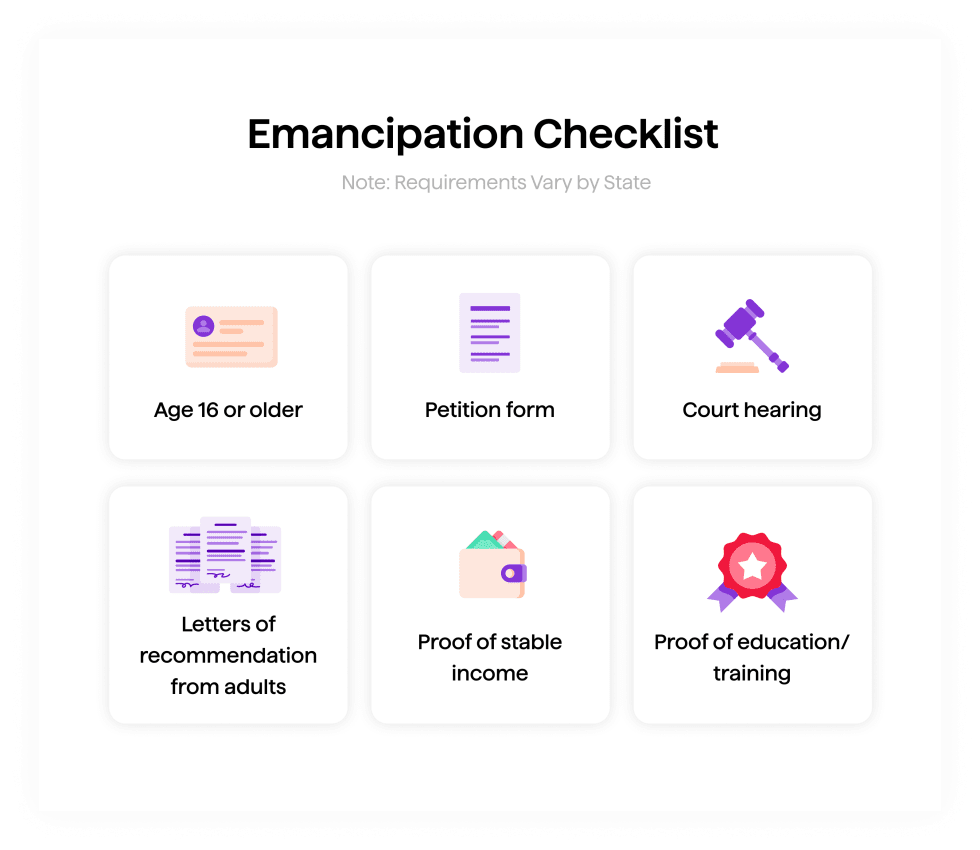How Old Do You Have to Be to Rent an Apartment? [2025]

There are many reasons why you might want to rent your own apartment as a 16-year-old. You may be escaping an unstable home, pursuing a higher education, or simply wanting more independence. While renting an apartment is a major milestone, minors face additional legal and practical challenges. Understanding these hurdles and exploring potential solutions is crucial to making smart decisions.
How Old Do You Have to Be to Rent an Apartment—And Can You Do It at 16?
The short answer: usually no, but there are exceptions.
In most cases, a person must be at least 18 years old to sign an apartment lease. However, special circumstances may allow minors to secure housing—though it is not an easy process. Before pursuing this, it’s essential to understand the legal and practical considerations involved.
Minimum Legal Age to Sign a Lease
In the United States, the age of majority—when an individual is legally recognized as an adult—is typically 18. This allows them to enter into binding contracts, including lease agreements. However, this age threshold varies in some states: Alabama and Nebraska set it at 19, and Mississippi sets it at 21.
Since a minor is not considered mature enough to enter into a contract, anything they sign is not legally binding. This makes most property owners unwilling to rent to minors unless certain conditions are met.

What Is Emancipation for Minors?
Emancipation is a legal process that frees a minor of parental control and grants them many of the rights of adulthood. Most states require minors to be at least 16 to petition for emancipation, although some states, such as California, will allow it for minors as young as 14.
To qualify for emancipation, a minor must prove they are financially self-sufficient and capable of providing their own food, shelter, clothing, and medical care. Some states automatically emancipate minors who legally marry or join the military.
Parental abandonment or abuse alone is often insufficient grounds for emancipation. However, given the variation in state laws, it’s important to seek legal counsel to understand the exact requirements.

Challenges of Renting as a 16-Year-Old
Even with emancipation, 16-year-olds will likely face many hurdles when looking for an apartment to rent. Landlords often hesitate to lease to younger tenants due to concerns about reliability and financial stability, even if they are legally allowed to sign a lease.
Another major obstacle is credit history. Most landlords run credit checks to ensure the financial responsibility of prospective tenants as part of the screening process, but since minors typically have little to no credit history, they may have difficulty qualifying.
Additionally, income verification can be a significant barrier. Many landlords require proof of steady income, such as pay stubs or tax returns, to ensure tenants can afford rent. Since most 16-year-olds have limited employment opportunities and lower earnings, meeting these income requirements could be a challenge.
How to Improve Your Chances of Renting at 16
If you're determined to rent at 16, there are a few strategies that may improve your chances of securing a lease. One of the most effective options is finding a co-signer, such as a responsible parent or legal guardian, who can guarantee the rent. This reassures landlords that payments will be made on time even if you face financial difficulties.
Another way to strengthen your rental application is to show proof of income. If you have a part-time job, providing pay stubs can demonstrate that you have a steady source of income to cover rent and living expenses. Some landlords may also be more willing to rent to younger tenants if they offer to pay rent upfront. This could mean providing a larger security deposit or prepaying several months’ rent in advance.
Additionally, providing personal references or strong letters of recommendation from teachers, employers, or mentors can help establish credibility in place of a rental history or a credit score.

Alternative Housing Options for 16-Year-Olds
For minors who are unable to rent independently, there are several alternative housing options that can provide stability and support. One possibility is student housing, which some educational institutions provide for underage students. Certain high schools, colleges, and vocational programs offer dormitories or boarding arrangements for minors, making it easier for them to continue their education while having a secure living space.
In some cases, minors may also find success with subletting or renting a room. Some landlords or tenants who are renting out extra space may be more flexible about lease requirements and less concerned about credit history. However, since subletting is not always permitted by landlords, it’s important to ensure that it is allowed under the original lease agreement.
Finally, transitional living programs run by nonprofit organizations may assist minors who are in difficult situations, such as those aging out of the foster care system or facing homelessness. These programs often provide not just housing but also job training, financial literacy education, and other resources to help young people transition into independent living successfully.
| Factor | Renting an Apartment | Student Housing | Living with Family | Subletting a Room |
|---|---|---|---|---|
| Requires a Lease? | Yes | No | No | Sometimes |
| Credit Check? | Yes | No | No | Sometimes |
| Costs | High | Medium | Low | Medium |
| Stability | High | High | High | Varies |
| Best For | Emancipated minors | Students | Those with supportive family | Those with flexible landlords |
What to Consider Before Moving Out at 16
Before deciding to live independently, think about the challenges and responsibilities that come with it. Financial responsibilities can be overwhelming—rent, utilities, groceries, and transportation costs all add up quickly. Careful budgeting and a reliable income are often necessary to cover these expenses consistently. Check out our First-Time Apartment Renter’s Guide to understand all the ins and outs of renting.
Legal considerations should also be taken into account. Some states require parental consent for minors to live independently, and others have restrictions on minors entering into contracts. Research the laws in your state to understand your rights and limitations.
Lastly, emotional readiness plays a huge role in whether living alone at 16 is a viable option. Independent living requires maturity, strong time-management skills, and problem-solving skills. Before making the leap, consider whether you have the support, resources, and skills to navigate adult responsibilities.
Conclusion
While renting an apartment at 16 is full of challenges due to legal restrictions and practical considerations, emancipation may provide a pathway to independence. However, it's essential to understand the responsibilities and obstacles involved. Exploring alternative housing options and seeking guidance from legal professionals or trusted adults can provide support during this transition.
Share this Article




